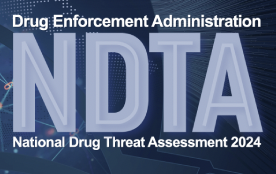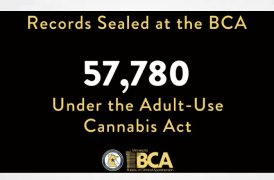Earlier this month, two federal courts—one in the Southern District of New York, another in the Western District of Washington—analyzed the issue of whether a federal court has jurisdiction to hear what would otherwise be routine breach of contract cases involving cannabis. Even though the cannabis-based businesses were legal at the state level in both cases, both courts came to the conclusion that the federal Controlled Substances Act (“CSA”) likely divested them of jurisdiction to hear the claims.
On December 6, 2019, a federal court in Seattle ruled on a motion to dismiss in the case of Left Coast Ventures Inc. v. Bill’s Nursery Inc. Left Coast involves a contract dispute over the rights to a license to distribute medical marijuana in Florida. The plaintiff and the defendant in Left Coast were both involved in a contract to prepare applications for one of the few available licenses. The defendant ultimately received a Florida medical marijuana license, and the plaintiff sued for a declaratory judgment and breach of contract. The plaintiff argued that the defendant’s issuance of a Florida medical marijuana license entitles the plaintiff to exercise its option to receive a share of the license. Due to a choice of law clause in the contract, the case had to be filed in a state or federal court in Washington State. Plaintiff filed suit in Washington state court, and the case was removed to federal court by the defendant.
The parties conceded that the medical marijuana license at issue was legal in Florida. Indeed, the very crux of the action revolved around the State of Florida granting one of the medical marijuana licenses at issue. Nevertheless, both parties argued that the federal court lacked jurisdiction to entertain the case. The defendant argued that the federal court could not enforce the medical marijuana contract, because marijuana is an illegal controlled substance under the CSA. For its part, the plaintiff argued that the court should decline federal jurisdiction under established federal abstention principles, sending the case back to Washington state court.
The court agreed with the plaintiff, finding that “abstention is appropriate . . . where there have been presented difficult questions of state law bearing on policy problems of substantial public import whose importance transcends the result in the case then at bar.” The federal court concluded that it should abstain from “evaluat[ing] state laws that are in direct conflict with the CSA.” The court declined, however, to dismiss the case entirely, as the defendant had hoped, explaining that its “acceptance of the illegality defense here might create disincentives for businesses to comply with state cannabis regulations by rendering their contracts unenforceable in federal court and could signal to those involved in the state cannabis industry that federal jurisdiction operates as an absolute defense to private contract claims.” (Quotations omitted). Instead, the court remanded the case back to state court.
Also on December 6, but on the other side of the country, a federal court in the Southern District of New York ruled on a motion for judgment on the pleadings. That case, Ricatto v. M3 Innovations Unlimited, Inc., involved the fallout over a potential partnership to purchase a plot of land and develop it as a facility to purchase and process cannabis under California’s Medicinal and Adult Use Cannabis Regulation and Safety Act. All of the parties agreed that the cannabis that would be processed at the facility would be legal under California law.
The Ricatto court dismissed plaintiffs’ claims, finding that no valid contractual obligation existedto. However, the court explained in a footnote that—even if a contract had been entered into, “it is not readily apparent to the Court that it could enforce such a contract. As the Second Circuit has unequivocally stated, ‘[m]arijuana remains illegal under federal law, even in those states in which medical marijuana has been legalized.’”
These two cases—issued on the same day on either side of the country—emphasize the precarious nature of cannabis business in America today. Even where the production of cannabis is legal on the state level, operators and individuals involved in the industry should be aware that they may not have the recourse to federal courts for protection where a contract or a deal goes sour.
Source: https://www.jdsupra.com/legalnews/federal-courts-divest-themselves-of-22629/

















